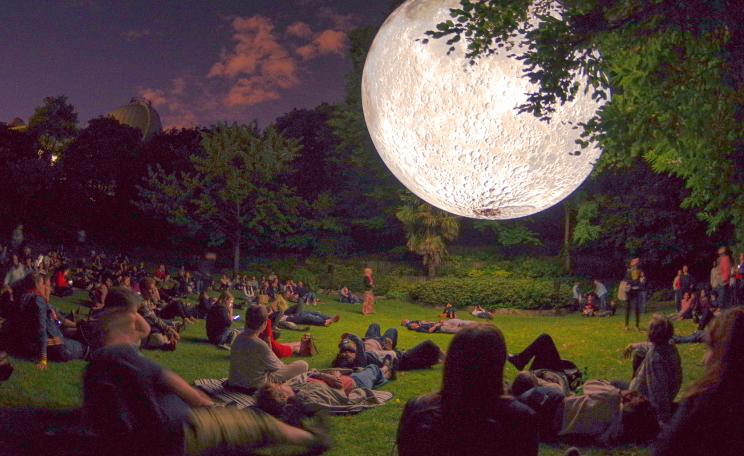I regularly have to bite my tongue over the summer months whenever I am invited to a barbecue. I never want to seem ungrateful, but at the risk of becoming a social leper this barbecue season I have to admit that I don’t understand why my otherwise green friends suddenly decide to get imported charcoal, economy burgers and cheap mass-produced lager and economy lemonade served in throwaway plastic cups as soon as the sun comes out. With a little thought it is very easy to throw an ethical barbecue.
Firelighters
Fire-lighting can be a problem, as we tend to opt for the less-than-eco option of firelighters or dousing the coals with a flammable liquid, often petrochemical-based, such as methylated spirits. We could instead take an etching out of Stone-Age man’s cave drawing and use a fungus. The cramp ball fungus, also known as King Alfred’s cakes (Daldinia concentrica), grows on dead and decaying ash trees, and can be found in most woodlands – even in my local park. Lit with just a spark it will continue to burn for some time. One is generally all you need to start a barbecue.
Charcoal
Approximately 90 per cent of the charcoal we buy in the UK is imported; even worse, the wood used is often harvested from tropical rainforests. This is a ludicrous state of affairs considering we have been making charcoal on our shores since the Bronze Age. Charcoal can be made from coppiced wood from here in the UK. Essentially this means that trees are cut back and their wood is harvested every few years. The wood is then stacked and heated in an airtight kiln, where it becomes charred rather than burnt. One company with excellent eco credentials that manufactures charcoal made from UK woodland is the BioRegional Charcoal Company. The company states that its charcoal is 100 per cent natural, easy to light, lasts longer, supports local employment and traditional industry, and reduces the CO2 of importing by as much as 85 per cent. It is available from some of the bigger stores, or you could ask your local store to stock some.
Meat
Due to the methane produced by the animals, the fuel used to import the meat and the damage to the environment caused by intensive livestock farming, meat is certainly a sticky issue environmentally speaking. I think some agreement can be reached in suggesting that economy burgers should be avoided at all costs, however, and that we should aim for British meat. Perhaps controversially, because of the methane produced by the ruminants, I tend to opt for Welsh lamb during the summer months, as it is in season, is fairly local to my Bristol home and Welsh sheep are often grazed on land that, in agricultural terms, cannot be used for much else. I have also tried British venison for a barbecue, which, although costly, can be made into very delicious burgers.
Cups and plates
An old friend of mine has a barbecue every year and invites the whole of her village. She never bothers with paper or plastic plates and cup, and instead uses normal crockery and glasses. She has a huge stock of them, collected cheaply from charity shops over the years, and after the barbecue the guests all help with the washing-up. I now do the same. Saying that, I can understand that some people could be worried about breakage and would want to use plastic plates. For you there is a recycled alternative available from the Ethical Superstore for £5.99. Or if you want to have something really different, how about crockery made from palm leaves? These can be used many times and at the end of their life can be composted or even fed to a cow. Twenty-five palm-leaf bowls will cost you £10.99, and they are available online from Nigel’s Eco-store For cups, personally I serve drinks in plastic cups from Thermos flasks, or make a homebrew ale, which comes in bottles.
-------------
DIY drinks – have you got the bottle?
Homemade lemonade
My girlfriend Emma makes this lemonade for each one of our barbecues for our ever increasing tribe of non-drinking friends. It is both refreshing and simple to make.
Ingredients:
The juice of seven lemons 110g of fine sugar 1.75 litres of warm water
Method:
Pour the sugar into the warm water and stir until dissolved. Allow to cool then add the lemon juice. Serve with a sprig of mint.
Elderflower Cordial
An easy-to-make drink that will keep for almost a month if simply bottled, although is best to drink within two weeks.
Ingredients:
20 elderflower heads, 1 sliced lemon, 2 tsp of citric acid (ask at your chemist), 1.5kg (3.5lb) of sugar, 1.2 litres (2.5 pints) boiling water
Method:
• Boil a kettle for the water.
• Fill a bowl or small bucket with all the other ingredients.
• Pour the water over the other ingredients and stir until the sugar has dissolved. Skin the surface of the water to get rid of the scum that can arise. Cover with a cloth
(mine has a pillowcase over it).
• Stir twice a day for five days. Strain though a fine sieve or through muslin cloth and decant into sterile screw-topped bottles. Refrigerate.
• As with other cordials, dilute with five parts water to serve . Experiment with it and add it to some of your favourite spirits. It is really nice as a gin mixer.
Rosemary Ale
Rosemary is one of those herbs that you should never have to buy. Have a walk around your local neighbourhood and you will be sure to find some growing in someone’s front garden. I am not suggesting you should just help yourself, but I am sure that if you knock and ask nobody will begrudge you a few sprigs.
Ingredients:
56g of rosemary leaves, stripped from the sprig, 750g Fairtrade brown cane sugar, 600g Essential Food organic barley malt extract, 9 litres of water
1 packet of Young’s Gold brewing yeast
Method:
• In a very large pan (or two smaller ones), boil 5 litres of water and the rosemary for 30 minutes. Meanwhile pour the malt extract and the sugar into a sterilised
fermentation bin.
• The boiling water should be strained through a muslin cloth or very fine sieve (or even an old t-shirt – as long as it is clean) into the fermentation bin. It should then be topped up with cold water to reach nine litres. Leave in a warm place (between 16°C and 21°C) for a week.
• I found that this brew created a large amount of sediment, so after the week it is advisable, though not imperative, to decant into a couple of demijohns for a further week before bottling. If decanting into demijohns then you could pour in half a jar of honey to prime or two tablespoons of sugar. If going straight to bottling then prime with half a teaspoon of sugar in each bottle. Either way the beer will be ready in a further week.
A word of warning does come with this beer, as my hydrometer reading and the resulting mayhem after people have had a few pints suggests that it is brewed to a strength of six per cent.
Andy Hamilton is co-author of The Selfsufficient-ish Bible







